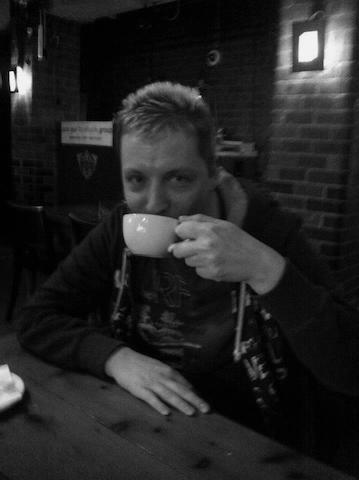 No motivation – I found it extremely difficult and tiring to do the smallest of tasks.
No motivation – I found it extremely difficult and tiring to do the smallest of tasks.
 Reckless spending of money – mostly through online shopping.
Reckless spending of money – mostly through online shopping.
 Any extremely variable mood which changed throughout the day and night. From being void of any feelings to a tornado of fast swirling feelings including: guilt, inadequacy and feeling like a failure.
Any extremely variable mood which changed throughout the day and night. From being void of any feelings to a tornado of fast swirling feelings including: guilt, inadequacy and feeling like a failure.
 Anxiety – resulting in becoming antisocial and finding it difficult to leave home.
Anxiety – resulting in becoming antisocial and finding it difficult to leave home.
 Worry and panic about what people would think of me.
Worry and panic about what people would think of me.
 Feeling hopeless, which is the worst feeling in the world.
Feeling hopeless, which is the worst feeling in the world.
 Feeling like I was loosing my mind.
Feeling like I was loosing my mind.
 Feeling like I was falling down a dark bottomless pit.
Feeling like I was falling down a dark bottomless pit.
 Feeling frustrated at not being able to snap out of it and that nothing I did made a difference to how I felt or my ability to function.
Feeling frustrated at not being able to snap out of it and that nothing I did made a difference to how I felt or my ability to function.
 Overly self-critical thoughts and zero self esteem. A critical inner voice that was loud and repetitive.
Overly self-critical thoughts and zero self esteem. A critical inner voice that was loud and repetitive.
 At two particularly bad points I suffered from compulsions to end my life.
At two particularly bad points I suffered from compulsions to end my life.
 In short, feeling like my mind, body and soul were being devoured and destroyed by this illness.
In short, feeling like my mind, body and soul were being devoured and destroyed by this illness.
So I went to see my GP who completed the PHQ depression test and diagnosed me with severe clinical depression. At several points throughout my treatment, this test was repeated to check on my progress. At one point, I was scoring 24 out of a possible 27. My GP started me on antidepressants and encouraged me to self-refer for counselling.
The first antidepressant didn’t work, despite gradually increasing the dose to the maximum. Apparently this is really common, happening to at least 50% of people. So my GP gradually withdrew the first antidepressant and then started me on another – which thankfully is working. I self-referred to counselling, had an assessment and to this date am still on the waiting list.
January to May has felt like a write-off in every sense of the word. But I feel extremely lucky to have made it through this dark and difficult time. What’s that phrase? Ah yes…I believe I made it through by the skin on my teeth.
Looking back, I’ve had depressive tendencies for at least the last few years. I’ve been rubbish at spotting the symptoms in myself, but am much more aware of signs, symptoms and triggers now.
I’m still in recovery and it is a gradual process. I’m still on the antidepressants and will be for sometime. I’ve started taking multivitamins to make sure my body and mind is getting what it needs. But now I’m feeling good, better than I have felt in years. I’ve even started laughing again, proper belly laughs, which I haven’t done for what feels like forever.
Now I’m getting back to life. I’ve thanked those close to me for their support, love, care and kindness. I’ve gone back to work and realised that I have the most brilliant, amazing and fantastic work colleagues. They’ve been so supportive and I feel so lucky to work with such wonderful people.
Blog soon,
Antony






